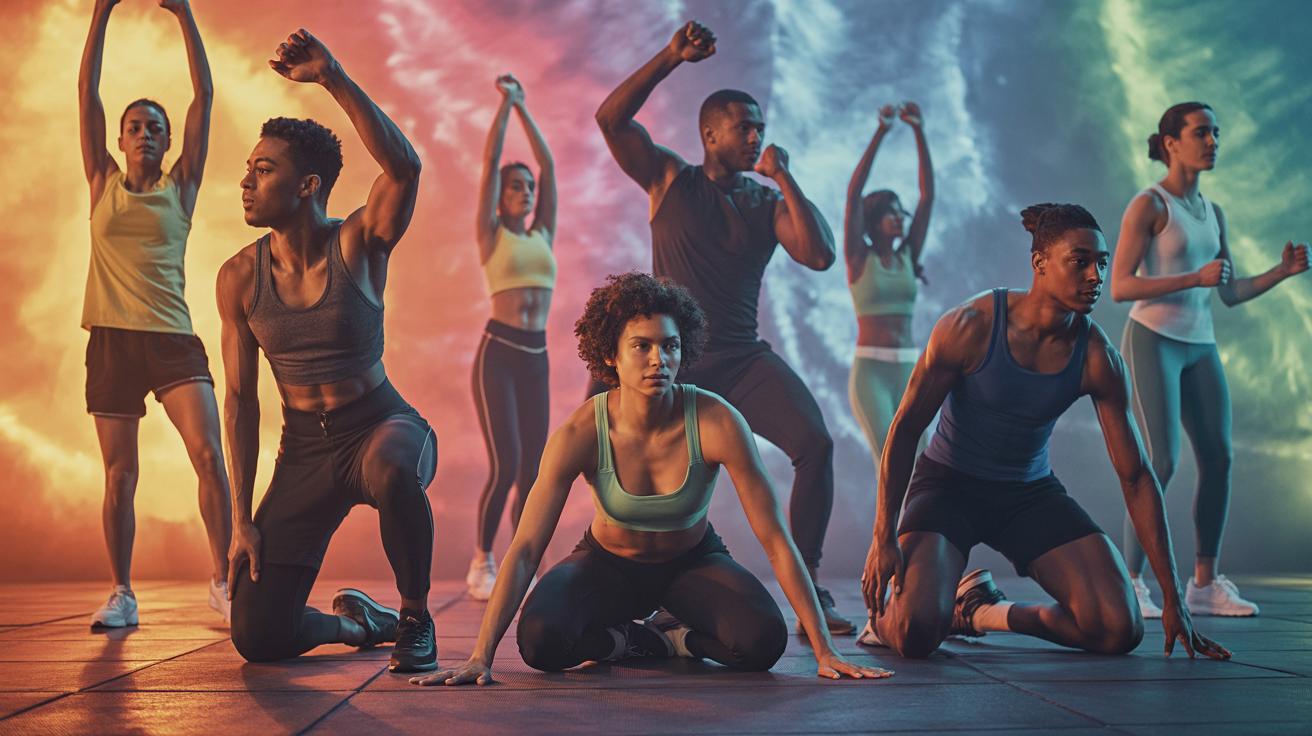What You Need to Know
- 🧠 Personality-Driven Workouts: Recent research highlights the importance of tailoring exercise routines to fit individual personality traits for maximum enjoyment and engagement.
- 🏃♀️ Extroverts Thrive in Groups: Extroverted individuals are more likely to enjoy high-intensity and social workout settings, such as team sports and group fitness classes.
- 🧘♂️ Private Workouts for Neurotics: Those with high levels of neuroticism benefit from private, low-pressure exercise environments, which can help reduce stress and anxiety.
- 📈 Boosting Physical Activity: Personalized exercise plans could significantly increase participation rates, as most adults and adolescents currently fall short of recommended physical activity levels.
- 🔍 Future Fitness Innovations: The study opens the door for developing tools and systems that assess personality traits and create tailored workout plans, making fitness more accessible and effective for all.
Many aspire to make exercise a more enjoyable part of their lifestyle, yet struggle to find the motivation. Recent research suggests a novel approach: aligning workouts with personality traits. This intriguing concept, explored in a study published in the journal Frontiers in Psychology, reveals that different personalities gravitate towards specific types of exercise. By understanding these preferences, individuals can potentially enhance their fitness journey, making it not only more effective but also more enjoyable. This article delves into the study’s findings, offering insights into how matching workouts to personality can transform the exercise experience.
The Connection Between Personality and Exercise Preferences
The study highlights a fascinating link between personality traits and exercise preferences. It suggests that individuals with different personality profiles are inclined towards varied forms of physical activity. For instance, extroverted individuals often thrive in high-intensity, social workout environments such as team sports. Their energetic and outgoing nature finds satisfaction in group settings where they can interact and compete with others.
Conversely, those scoring high on neuroticism, which measures emotional instability, prefer more private, low-pressure workouts. These individuals may feel more comfortable exercising in solitude, away from prying eyes, and benefit from activities that allow them to take frequent breaks. Such tailored approaches can significantly enhance engagement and enjoyment in physical activities, proving that understanding one’s personality can be a game-changer in the realm of fitness.
Implications for Increasing Physical Activity
Understanding personality-driven exercise preferences could have far-reaching implications for public health, especially since only a minority of adults meet the recommended levels of physical activity. The study found that just 22.5% of adults and 19% of adolescents worldwide achieve the World Health Organization’s recommended 150 minutes of physical activity per week. By focusing on personality types, healthcare providers can offer a more personalized approach to exercise, potentially increasing participation rates.
Such personalized recommendations can make exercise more accessible and appealing, especially for those who find traditional fitness regimes daunting. By tailoring exercise plans to fit individual preferences, we can create a more inclusive fitness culture that encourages broader participation and ultimately improves public health outcomes.
Personality Traits and Their Impact on Stress Levels
The study also uncovered how exercise influences stress levels differently across personality types. Participants with high neuroticism experienced a significant reduction in self-reported stress after engaging in exercise tailored to their preferences. This finding is particularly noteworthy as it highlights the stress-relieving benefits of personalized workout plans.
By recognizing and accommodating individual differences, exercise programs can not only improve physical health but also enhance mental well-being. This dual benefit underscores the importance of considering personality traits when designing fitness routines, as it can lead to more effective and satisfying outcomes for participants.
Challenges and Future Directions
While the study’s findings are promising, there are challenges to implementing personality-based exercise programs. One major challenge is accurately assessing and categorizing individuals’ personality traits. Moreover, creating tailored exercise plans requires resources and expertise that may not be readily available to all fitness providers.
However, the potential benefits of personalized exercise regimens are too significant to ignore. Future research could focus on developing accessible tools for assessing personality traits and creating automated systems to generate personalized workout plans. This could democratize access to customized fitness solutions, making them available to a wider audience and promoting healthier lifestyles on a larger scale.
As we continue to explore the connection between personality and exercise, it’s clear that a one-size-fits-all approach may no longer suffice. By understanding and catering to individual preferences, we can revolutionize the fitness experience, making it more inclusive and effective for everyone. What steps can we take to integrate this personalized approach into mainstream fitness programs and encourage more people to embrace a healthier lifestyle?
Did you like it?4.5/5 (26)







7 comments
OliviaArtemis
Does this mean I can skip my morning runs if they’re not aligned with my personality? Asking for a friend! 😜
joseph
I wonder how this approach could be implemented in schools for kids? It could make PE classes more engaging for everyone!
Ethan_Radiant
This is such a great post! I appreciate the detailed breakdown of how personality affects exercise preferences. Really helpful! 👍
liam
So, if I’m an introvert who loves reading, does that mean I should be lifting books instead of weights? 😂
lincolnlegend9
I’ve never thought about workouts this way before. Maybe that’s why I struggle with motivation. Time to rethink my approach!
HarleyVoyager
How do I figure out what kind of workout matches my personality? Is there a quiz or something to help with that?
BrysonAurora
Wow, this is mind-blowing! I’ve always felt group workouts weren’t for me! Guess I’ll stick to my solo yoga sessions. Thanks for the insight! 😊